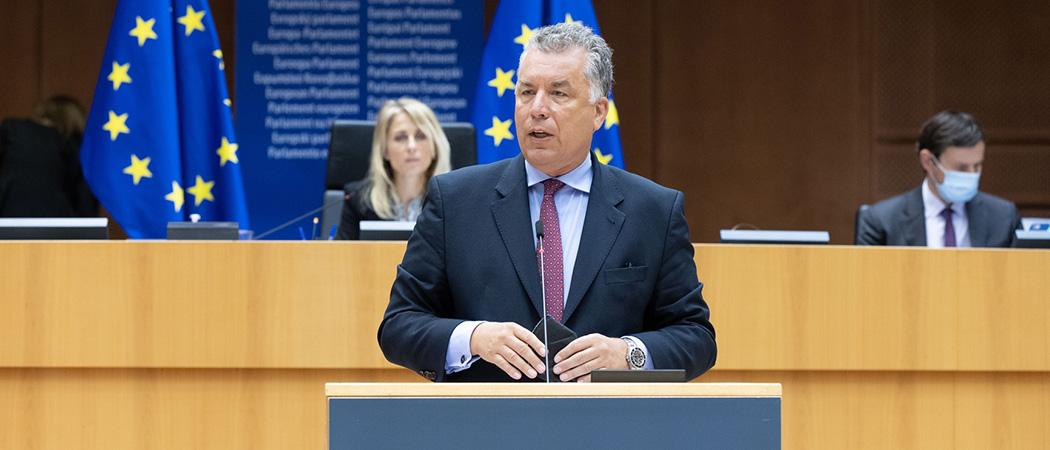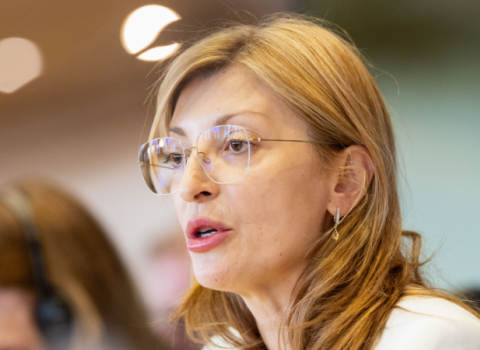As part of the ongoing development of EU research and innovation policy, it is now time to start the debate and support concrete actions to protect academic freedom in Europe

Christian Ehler MEP
This year will be crucial for the future development of the European Research Area (ERA), but one of its fundamental principles is being neglected: academic freedom.
Academic freedom is under threat and Europe needs to act.
We all know research and innovation are changing, and that we need to make ERA future-proof. Openness and interaction are more important than ever. This requires policy and policy development to change as well. We, as policy makers, need to be open for discussion and interaction, to shape policy together.
The European Commission Research and Innovation Days (R&I Days) event in June stands as an example of the dynamism and openness of the European research and innovation policy field. The number of people attending, and their diversity, was truly impressive.
The programme for the event also spoke of the breadth of Commission efforts in the field. Research is no longer a niche activity, but is at the heart of the key policy developments in Europe.
As an important part of that policy, the future of ERA and the vision of creating an open research system was discussed during the R&I Days. However, one essential topic was not on the agenda: academic freedom.
Academic freedom, the foundation for Europe’s success as a scientific powerhouse and a knowledge-driven economic power, is under pressure, both in Europe and globally. That is why it was crucial to have a dedicated, open discussion on the future of academic freedom in Europe during the R&I Days.
Academia is being increasingly politicised in the 21st century and this puts academics at risk of losing their jobs. Extremist parties and activists have denounced academics who disagree with them, and even challenged the legitimacy of their academic positions. It is also the case that politicians from ruling parties have openly attacked academics and experts. Democratic norms that underpin the independence, and protect position of academics, have been eroded.
Principles need to be matched by action
This is a worrisome trend is strongest in the US, but is certainly present in Europe as well. However, the most fundamental and pressing threat to academic freedom is the rise of illiberal (tendencies of) governments, including some in the EU.
In Hungary the academic sector is systematically being brought under more governmental control. In Poland academics face civil law suits, with the implicit support of the government, for their research on the Holocaust in Poland. In France the minister ordered an investigation into ideological influences on higher education.
Article 13 of the European Charter protects academic freedom and the EU should be providing that layer of protection against these threats.
Evidently, that protection is not strong enough. We need to be debating measures designed to strengthen the protection of academic freedom in the EU. In October 2020, member states agreed to the Bonn declaration on freedom of scientific research under the German presidency. The declaration sets out the right principles, but does not prescribe any concrete actions.
The fact that it took several member states months to sign the declaration after it was agreed, is also a worrisome sign of a lack of urgency – or commitment - in some quarters.
In the face of these developments, a European debate on specific action to protect academic freedom in the EU is crucial.
The R&I Days 2021 would have been a perfect opportunity to start the debate, but the missed opportunity does not mean that the conversation can be avoided and will not happen.
At a time that the Conference on the Future of Europe is underway, with the aim of looking at the medium to long term future of the EU and what reforms should be made to its policies and institutions - and as we are shaping ERA to be fit for the future - we cannot afford to neglect this debate.
Academic freedom goes to the heart of our union and the Parliament will treat it as such. In the Parliament we will start the conversations we need to be having. We need to review the legal protection of institutional autonomy in the EU; we need to consider how we can support individual academics against undue governmental influence on their work.
In addition, we should consider the role of European funding in these efforts and how academic freedom relates to the rule of law mechanism that was agreed in April 2019 to prevent challenges to the rule of law from emerging and gaining ground.
In line with the ongoing development of European research and innovation policy towards openness, I call on the other European institutions to join these conversations and support concrete actions to protect academic freedom in the EU.





 A unique international forum for public research organisations and companies to connect their external engagement with strategic interests around their R&D system.
A unique international forum for public research organisations and companies to connect their external engagement with strategic interests around their R&D system.